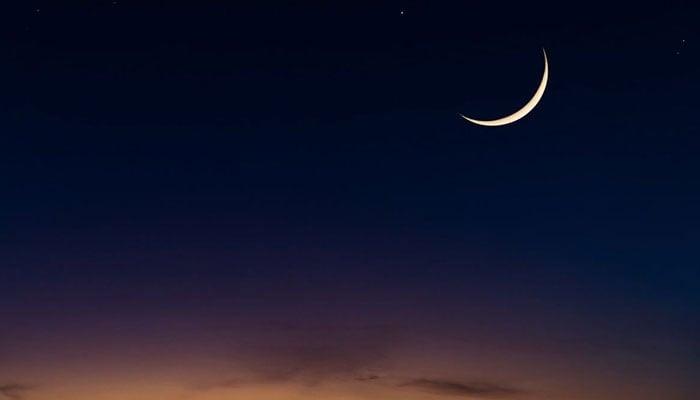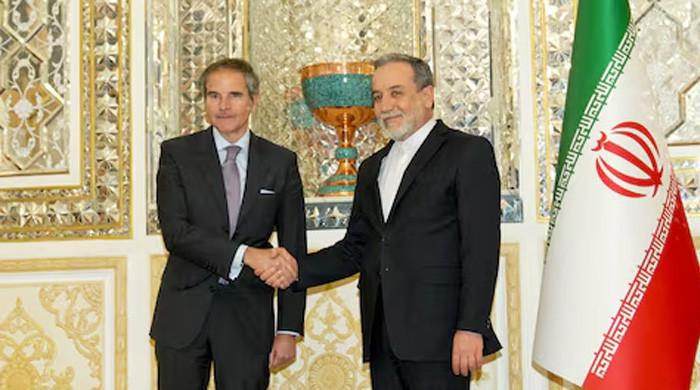Ramadan moon sighted in Saudi Arabia
People in kingdom, UAE and other Middle Eastern countries to observe their first fast today (Monday)
March 10, 2024

- UAE confirms Ramadan moon sighting.
- First Roza in Saudi Arabia today (Monday).
- Saudi top court announces moon sighting.
Saudi Arabia on Sunday announced sighting the crescent of the new lunar month marking the beginning of holy Ramadan in the kingdom.
Social media handle for news and announcements about the two holy mosques, the Grand Mosque of Makkah and the Prophet's (PBUH) Mosque in Madina, confirmed the Ramadan crescent citing the nation's moon-sighting committee.
People in Saudi Arabia will observe their first fast today (Monday).
According to Khaleej Times, the Saudi Supreme Court announced that the crescent was spotted on Sunday (March 10) evening.
Meanwhile, United Arab Emirates (UAE) also sighted the Ramadan moon, shortly after the reports from Saudi Arabia.
The apex court of Saudi Arabia and moon sighting committee in the UAE had declared Sunday evening as the expected date for Ramadan moon, calling on their residents to look for the crescent and submit reports.
Saudi Arabia is usually the first country to sight the moon for Islamic months, which is followed by other Arab, Middle Eastern and Western countries and some parts of India.
The Muslim world welcomes Ramadan with religious zeal and fervour. Over a billion believers will fast during Ramadan to practice patience and self-control while also promoting charity and welfare.
The Islamic months last 29 or 30 days and the beginning or end of a month depends on the appearance of crescent, so Ramadan is not set on any specific day annually.
The month of Ramadan is the ninth of the 12 months of the Islamic calendar. Despite having as many months as the Gregorian calender, the Islamic calender is nearly 10 days shorter due to being based on the lunar orbit.
This is why Ramadan falls at a different time every year according to the Gregorian calendar.











